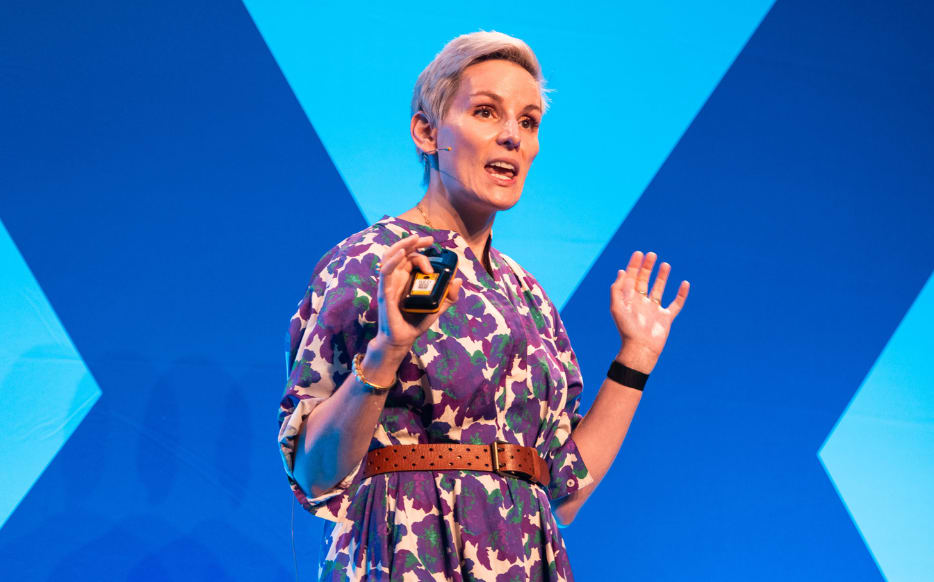You have 1 article left to read this month before you need to register a free LeadDev.com account.
Estimated reading time: 7 minutes
Understanding the difference between staff engineer, principal engineer, and distinguished engineer can be confusing.
The career trajectory of an individual contributor (IC) is less established than the path for engineering managers, with tech companies approaching titles differently.
The same role can come with a wide variety of titles depending on the organization, making it hard to identify patterns around job scope, skills, and experience. It can, therefore, be really tricky to know the differences between staff engineers, principal engineers, and distinguished engineers.
To find out what IC leaders have in common, LeadDev spoke to a group of engineers and asked them to describe their roles and responsibilities. Here’s what we learned.
Your inbox, upgraded.
Receive weekly engineering insights to level up your leadership approach.
The typical IC leadership career ladder

Staff engineers
Staff engineer is the first rung on the IC leadership ladder, a level above senior engineer. Along with technical strength, core leadership skills such as critical thinking, judgment, listening, empathy, and communication are essential at this level of seniority.
They lead deep, complex, or high-risk technical projects, and steer all the communication channels around them. They support the organization by providing context and technical direction, defining technical specifications, and documenting processes. The percentage of their time spent coding differs from one person to the next, but averages around 20%.

London • June 2 & 3, 2026
LDX3 London agenda is live! 🎉
They also play an important coaching and mentoring role by sharing best practices with other engineers and creating new opportunities for their growth. And they give technical performance reviews, aiming to improve the technical capacity of the entire engineering organization.
Staff engineers tend to work directly with permanent teams as well as pairing with other temporary project teams. The reporting line varies from one company to another, but they have a certain level of autonomy: usually, they report to a manager but control their own day-to-day activities.
Job description
Staff+ engineers use their technical knowledge to identify areas that require improvement or change. Their day-to-day may consist of evaluating software, parachuting into teams, upgrading processes, finding solutions to system problems, establishing technical roadmaps, and leading projects.
Staff+ engineers will have a keen eye for problem-solving and leadership skills. Conflict resolution, strategic thinking, collaboration, and influencing are core tenets of their expertise.
2025 expected salary of staff engineers
The salary range for staff+ engineers varies significantly depending on the region:
- United States: Staff Engineers can expect an average base salary of $186,766 per year, with typical ranges between $145,576 and $242,780. Top earners (90th percentile) can make up to $304,905, according to Glassdoor.
- United Kingdom: In the UK, the average base salary for Staff Engineers is £92,262 per year, with typical ranges between £67,145 and £132,221. Top earners can make up to £192,175.
- Germany: Staff Engineers in Germany typically earn between €95,000 and €115,000 annually. Additional compensation can range from €2,000 to €24,000, depending on the company and role.
- Australia: In Australia, Staff Engineers can expect an average base salary of A$170,000 to A$215,000 per year, with additional compensation ranging from A$10,000 to A$25,000.
- India: In India, Staff Engineers have an average base salary between ₹35,20,000 and ₹50,90,178 per year. Additional compensation can range from ₹3,50,000 to ₹8,00,000, depending on the company and role.
Principal engineers
The rank above a staff engineer is a principal engineer. It’s harder to pin down the day-to-day execution of this role because each person’s journey depends on their own expertise, and how they can apply it to help the business achieve its goals. Generally, principal engineers exist to guide the technical direction of the company.
Principals have a deep, strategic understanding of company priorities, and make technical decisions to solve business problems. To do this, they draw on their wealth of technical experience, an understanding of different risks, and an ability to navigate different perspectives and priorities.
These folks are the connective tissue between the on-the-ground work completed by engineers, and senior executives. They’re extremely autonomous in their day-to-day work, but should be able to collaborate (and be completely aligned) with management in order to make good business decisions. Though they aren’t on the management track, they lead with influence, advising, and asserting their ideas without official authority.
Principal engineer vs. senior engineer: What’s the difference?
While both roles involve high technical expertise and leadership, principal engineers are responsible for more strategic, high-impact decisions. Their scope of influence is organization-wide, providing a lasting effect on the company’s technical landscape.
Senior engineers, on the other hand, set technical standards and lead at a team level. While still autonomous, their domain or project area will have a narrower scope.
A principal engineer’s job description
Principal engineers will set the engineering strategy for the company. These individuals will manage technical projects with broad impact, meet with stakeholders to advise and negotiate, supervise engineering teams, and mentor junior staff engineers.
Other requirements include managing deadlines, discussing budgets, and aiding in hiring and training.
A principal engineer’s salary in 2025
Principal engineers command competitive salaries worldwide, with compensation varying by region:
- United States: The average base salary for a principal engineer is $235,926 per year, with a typical range between $186,549 and $302,800. Top earners (90th percentile) can make up to $375,919, according to Glassdoor. Additional compensation, such as bonuses and profit sharing, can add approximately $62,035 to total earnings.
- United Kingdom: In the UK, the average base salary is £66,581 per year, with a typical range between £52,625 and £86,420. Top earners can make up to £113,207. Additional compensation varies but can include bonuses and other benefits.
- Germany: Principal engineers in Germany typically earn between €85,000 and €115,000 annually. Additional compensation can range from €2,000 to €24,000, depending on the company and role.
- Australia: In Australia, the average base salary for a Principal Engineer is A$208,000 per year, with a typical range between A$170,000 and A$238,620. Top earners (90th percentile) can make up to A$278,600.
- India: In India, the average base salary for a principal engineer is ₹3,773,098 per year, with a typical range between ₹2,600,000 and ₹5,175,000. Top earners can make up to ₹7,270,000. Additional compensation varies but can include bonuses and other benefits.
Distinguished engineers
Very few people make it to the level of distinguished engineer. This role recognizes these individuals for their outstanding technical achievements and is just one step away from the title of fellow. More commonly, this role exists within larger companies and these folks help to shape the organization’s direction, carve out strategic roadmaps, and meet business goals.
These leaders have the time, space, and flexibility to build out their own areas of expertise to strengthen the company. This includes working closely with other stakeholders and executive teams, keeping aligned with management, and avoiding frustration on both sides. This folds in with distinguished engineers having a strong history of growing and influencing others, highlighting a need for exceptional interpersonal skills.
A distinguished engineer’s job description
Distinguished engineers are established leaders, thought of as director-level ICs. They provide technical direction and are experts in their domain, helping to bring about practical, reusable, and scalable solutions. These individuals will drive innovation across many different levels, using their technical expertise to drive business impact.
They act as advisors to managers, advocating for technologies and platforms. Communication, collaboration, visionary outlook, and mentorship will come naturally to distinguished engineers.
2025 salary for distinguished engineers
As you’d expect from such a senior position, a distinguished engineer’s salary doesn’t disappoint.
- United States: Base salaries for Distinguished Engineers typically range from $160,000 – $287,000 per year, with an average base pay of $213,000, Glassdoor reports. Additional compensation, including bonuses and other incentives, can average around $149,000 per year, with a typical range of $112,000 – $209,000.
- United Kingdom: In the UK, base pay usually falls between £112,000 and £186,000, with an average base pay of £145,000. Additional compensation can average around £43,000 per year, with a typical range of £24,000 – £77,000.
- Germany: Base salaries generally range from €142,000 to €197,000, with an average base pay of €168,000. Additional compensation can average around €45,000 per year, with a typical range of €34,000 – €47,000.
- Australia: Base pay ranges from A$170,000 – A$238,620, with top earners reaching A$278,600. Additional compensation, including bonuses, can range from A$10,000 – A$36,000.
- India: In India, Distinguished Engineers earn a base salary of ₹36,00,000 – ₹1,00,00,000 per year, with an average base pay of ₹78,00,000. Additional compensation can average around ₹10,00,000 per year, with a typical range of ₹5,00,000 – ₹23,00,000.
Final thoughts
Getting to grips with senior IC roles is hard. There’s little alignment in the industry, with organizations approaching titles differently based on their business needs (which can change as they grow and need different things from a role).
But the leaders we interviewed all shared some common ground: they lead and advise on the big, technical decisions that impact a company’s future; they work to empower engineering squads; they build relationships with stakeholders and bridge gaps with senior management; and they find ways to lead with influence, rather than authority.





